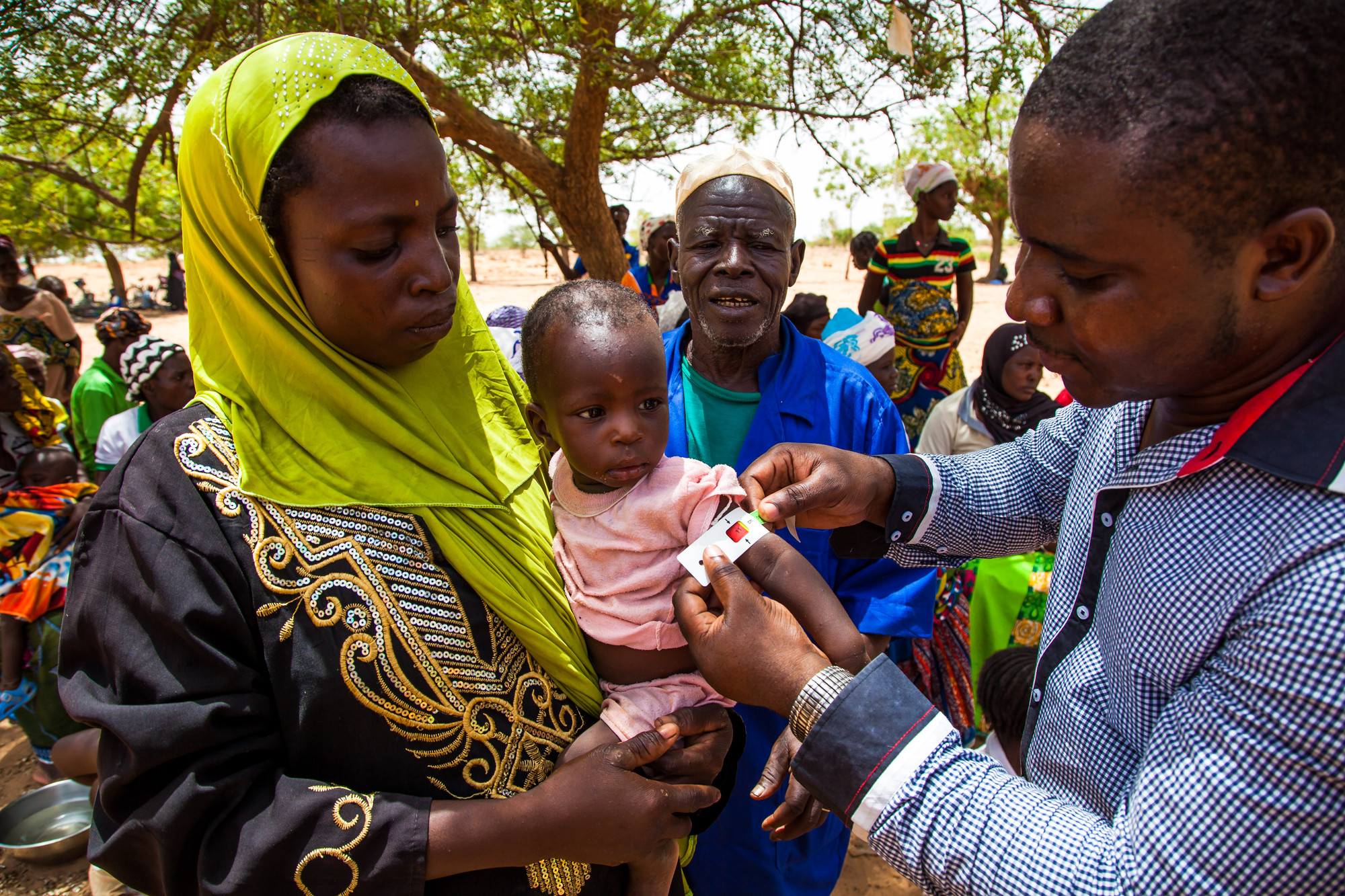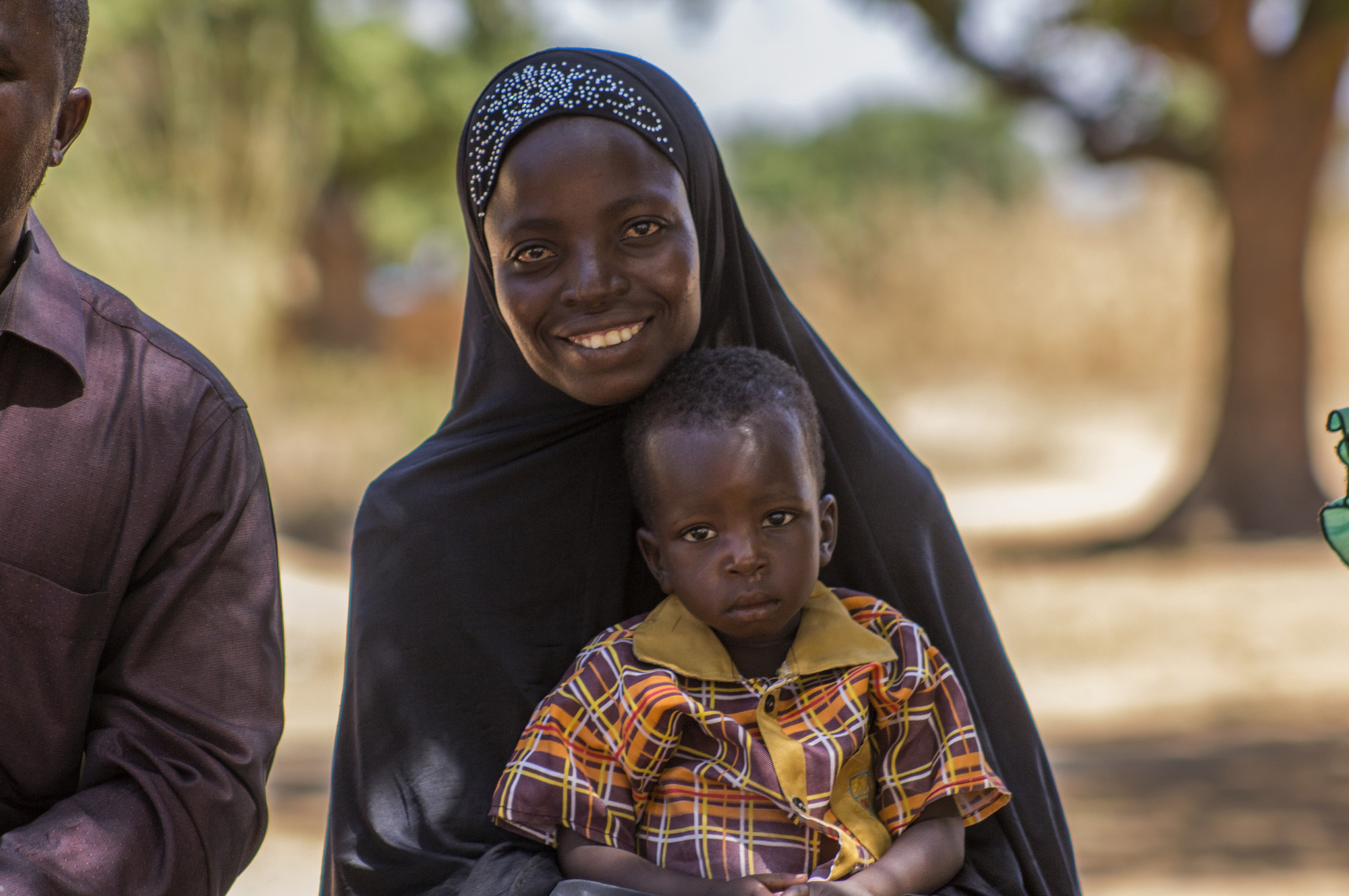From malnutrition to strength in Burkina Faso

Two years ago, Adjiratou Ouédraogo worried for her son, Sofiane, who was severely malnourished.
Ouédraogo, 26, is from Noaka, Burkina Faso, a rural area near the Sahel Desert where more than 20 percent of children are ill because of a lack of sanitation and proper nutrition. Sofiane was one such child.

“He was very weak,” Ouédraogo says. “Sometimes with convulsions, anemia, diarrhea and a loss of appetite. It was very severe.”
She was able to get help from Mennonite Central Committee’s (MCC) partner, Foundation of Solidarity for the Promotion of Community Development, which goes by its French acronym FOSPDC. The organization educates people in the rural areas of the West African country about health, nutrition and sanitation to reduce diseases caused by poor hygiene.
For example, FOSPDC teaches people how to enrich porridge and how to better nourish infants. In 2016, the foundation also distributed MCC canned meat to approximately 600 women in the Noaka area, including Ouédraogo.

“We were really happy to have help and support from FOSPDC,” she says. “It made a big difference, and now Sofiane is strong again.”
According to Gustave Sawadogo, the president of FOSPDC, much of the foundation’s work is in rural Burkina Faso, especially in areas affected by chronic drought and unreliable weather.
“In big cities like Ouagadougou and Bobo-Diolasso, malnutrition is less of a severe problem, but in rural areas it’s still a problem. Especially, when you approach the Sahel desert, it gets worse. This is the case because the seasons aren’t as reliable for growing food,” Sawadogo explains.
MCC’s financial support allows the foundation to meet critical health needs and provide long-term solutions, including having conversations with community members during health trainings.

The conversations allow people to talk about what’s going well with their health and what can use improvement. FOSPDC also uses local radio broadcasts to educate the community on topics such as handwashing and nutrition.
“These supports (supplies), as well as community conversations there, have caused changes, not only changes in behavior but changes in health also for mothers and infant children,” Sawadogo says.
On a personal note, Sawadogo says he feels honored helping people in rural communities like Noaka.
“It’s a joy for us to be able to help someone through the support that we give in the different villages. We say sometimes that the hand that gives is often more joyful than the one that receives because when we give we feel more happy.”
Top photo: Adjiratou Ouédraogo holds her son, Sofiane Sawadogo, while Gustave Sawadogo measures the circumference of Sofiane's arm, an indicator of the child's health. Rasmané Sawadogo, back, watches the evaluation that took place in Noaka, Burkina Faso. MCC photo/James Souder

